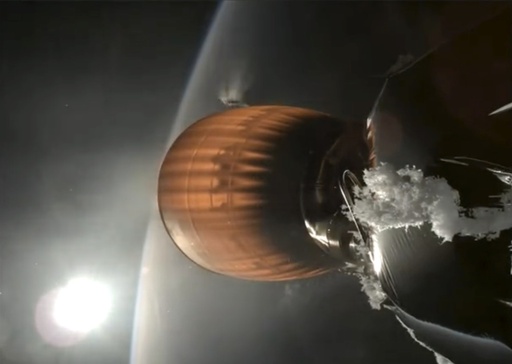A recent SpaceX rocket launch ended in failure for the first time in almost ten years, causing the company’s 20 internet satellites to be stranded in a low orbit, unable to be salvaged and destined to burn up upon reentry into the Earth’s atmosphere. The Falcon 9 rocket took off from California carrying the Starlink satellites, but experienced an upper stage engine malfunction due to a liquid oxygen leak shortly after liftoff.
SpaceX attempted to communicate with half of the affected satellites and tried to maneuver them to a higher orbit using onboard ion thrusters. However, with the satellites at an orbit only 84 miles (135 kilometers) above the Earth, much lower than planned, it is unlikely that the available thrust will be sufficient to boost them successfully, as confirmed by the company.
The Federal Aviation Administration has emphasized the necessity of resolving the issue before Falcon rockets can resume flights. The incident’s impact on SpaceX’s upcoming missions, including a private spaceflight scheduled for July 31 and an astronaut flight to the International Space Station in mid-August, remains unknown. The private flight’s leader, Jared Isaacman, expressed confidence in SpaceX’s Falcon 9 and its safety features without elaborating on possible repercussions.
Despite this setback, SpaceX owner Elon Musk remains optimistic, stating that the frequent launch rate will facilitate the identification and rectification of any technical anomalies. This failure marks the first since a space station cargo run mishap in 2015 and a subsequent rocket explosion during ground testing in 2016. SpaceX is known for its successful space missions and pioneering advancements in space technology.


